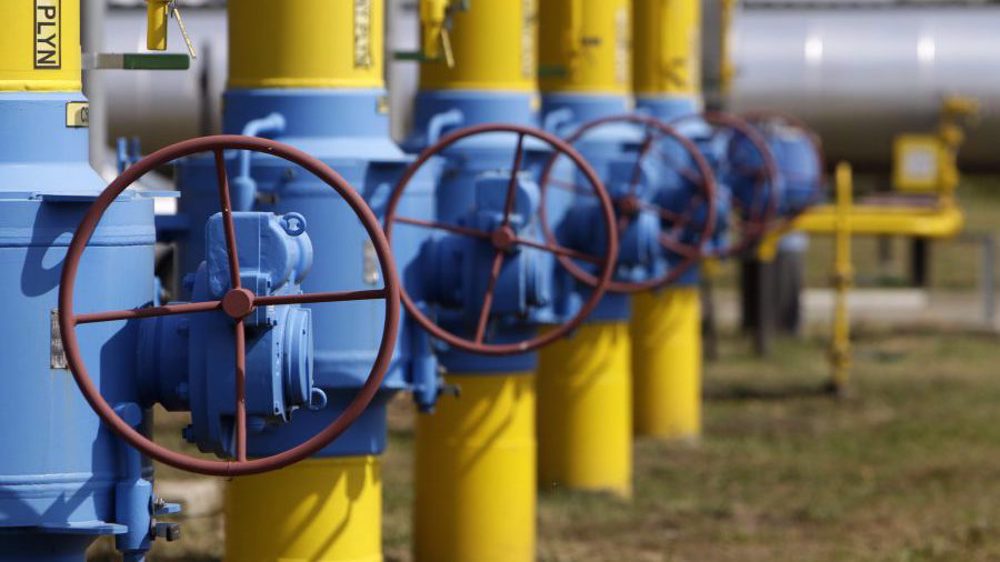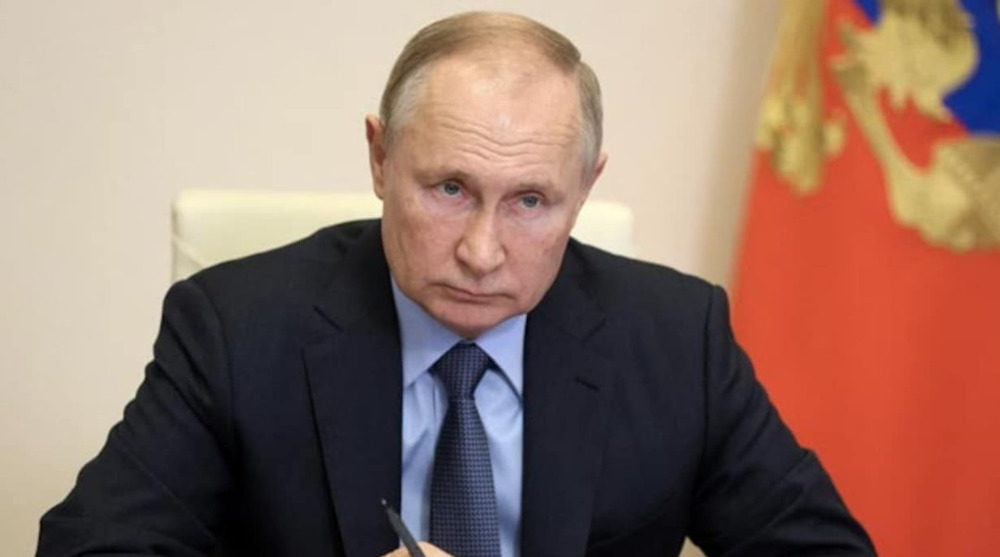Oil tops $105, European wheat prices hit record amid Ukraine crisis
Russia’s military operation in Ukraine’s Donbass region has raised the world oil prices to over $100 per barrel for the first time in more than seven years, also causing the price of wheat to break its previous record high across Europe.
Oil prices jumped on Thursday, with Brent rising above $105 a barrel for the first time since 2014, after the Russian operation in Ukraine intensified concerns about disruptions to global energy supply.
Russia launched the operation in Ukraine by land, air and sea in the biggest attack by one state against another in Europe since World War II.
The United States and Europe have promised the toughest sanctions on Russia in response.
"If sanctions affect payment transactions, Russian banks and possibly also the insurance that covers Russian oil and gas deliveries, supply outages cannot be excluded," Commerzbank analyst Carsten Fritsch said.
At least three major buyers of Russian oil were unable to open letters of credit from Western banks to cover purchases on Thursday, sources told Reuters.
Brent crude was up $7.26, or 7.5%, at $104.10 a barrel as of 1437 GMT, having touched a high of $105.79. US West Texas Intermediate (WTI) crude jumped $6.63, or 7.2%, to $98.73.
Brent and WTI hit their highest since August and July 2014 respectively.
"Russia is the third-largest oil producer and second-largest oil exporter. Given low inventories and dwindling spare capacity, the oil market cannot afford large supply disruptions," UBS analyst Giovanni Staunovo said.
"Supply concerns may also spur oil stockpiling activity, which supports prices."
Russia is also the largest provider of natural gas to Europe, providing about 35% of its supply.
UK Prime Minister Boris Johnson said Britain and its allies would unleash a massive package of economic sanctions on Russia and that the West must end its reliance on Russian oil and gas.
China warned of the impact of tensions on the stability of the energy market.
"All countries that are truly responsible should take responsible actions to jointly maintain global energy security," a Chinese foreign ministry spokesperson said.
Global oil supplies remain tight as demand recovers from pandemic lows.
Reflecting the tightness, premiums on crude contracts for loading in one month over contracts for loadings in six months, a metric closely watched by traders, hit a record high at $11.55 a barrel.
"This growing uncertainty during a time when the oil market is already tight does leave it vulnerable, and so prices are likely to remain volatile and elevated," said Warren Patterson, head of ING's commodity research.
Analysts say Brent is likely to remain above $100 a barrel until significant alternative supplies become available from US shale or Iran, for example.
Analysts are warning of inflationary pressure on the global economy from $100 oil, especially for Asia, which imports most of its energy needs.
"Asia's Achilles heel remains its vast import needs for energy, with surging oil prices bound to take a hefty bite out of income and growth over the coming year," said HSBC economist Frederic Neumann.
European wheat prices hit record high
The price of wheat smashed its previous record high in European trading on Thursday after the Russian military operation, putting a question mark on the future of exports from two of the world's biggest producers of the key commodity.
Wheat soared to 344 euros ($384) a ton, far above its previous record of 313.5 euros recorded late last year, said Edward de Saint-Denis of the brokerage firm Plantureux & Associates.
It later fell back to around 320 euros a ton. The price of corn meanwhile shot up to 304 euros a ton.
Agricultural commodities are usually much less volatile than stocks or oil, but have recently seen spectacular spikes and drops provoked by a US-claimed Russian invasion of Ukraine.
The stakes are especially high for wheat, with Russia being the world's top exporter and Ukraine the fourth, according to estimates by the US Department of Agriculture (USDA).
The consequences for agricultural markets of Russia's military operation in Ukraine on Thursday, which provoked threats of broad sanctions against Moscow from the West, are still difficult to predict.
"It is totally unprecedented," said Sebastien Poncelet, an analyst with the French consultancy Agritel.
"When we see that there are explosions in Odessa, which is the main Ukrainian port, we must assume there will not be much grain loaded there today," he said.
When the Crimean Peninsula rejoined Russia in a 2014 referendum and Moscow backed pro-Russia separatists in Ukraine's east, prices rose by 15-20 percent before falling back after four to five months.
"The fighting was essentially confined to Donbas, which is not a big agricultural region, and the crisis remained focused on Crimea," Poncelet said. "What we are seeing today is on a completely different scale."
In Italy, which imports a majority of its wheat and corn, the Coldiretti agricultural association sounded the alarm on Thursday.
"The war is aggravating the problems of the national agricultural sector, which is already suffering from the effects of price volatility," Coldiretti president Ettore Prandini said in a statement.
(Source: Agencies)
Mother’s Day: Sareh Javanmardi’s inspiring journey as Paralympic champion and mother
Russia downs over 40 Ukrainian drones as Putin vows 'destruction' on Kiev
VIDEO | Yemen: A bone in Israeli neck
D-8’s role in Iran’s economy after Cairo summit
China slams US as ‘war-addicted’ threat to global security
China ‘firmly opposes’ US military aid to Taiwan
VIDEO | Press TV's News Headlines
President Yoon Suk Yeol to be removed from office












 This makes it easy to access the Press TV website
This makes it easy to access the Press TV website